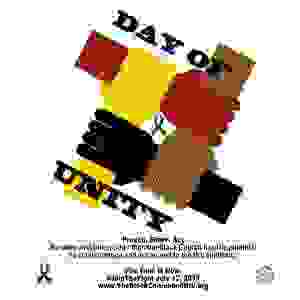
Black pastors to preach about HIV/AIDS
By Rapstation Editor for Rapstation.com
This Sunday, pastors in primarily black churches across America will preach about the epidemic of HIV/AIDS in the African-American community. The fourth national Day Of Unity, organized by the NAACP, will bring the usually taboo subject into the heart of the African-American community through a place of power.
Rev. Tony Lee, the pastor of Maryland's Community of Hope AME Church, is one of several clergy members to get tested for HIV in front of his entire church. The visual is a reminder to the members that HIV awareness is also an important part of the social justice fight in the African-American community to this day.
"Anywhere there are instances of people falling short of the fullness God wants for them it's important for the Church to step in," Lee said in an interview with Huffington Post. "Dealing with HIV/AIDS is a civil rights issue, but it's also a kingdom of God issue. It's about the work of the gospel."
The African-American population is more affected by HIV than any other ethnic group in the country. According to the Center for Disease Control and Prevention, Black Americans accounted for about 44 percent of all new HIV infections among adults and adolescents in 2010, despite only being 12 percent of the population. With numbers like that, it means that the rate of new infection in the African-American population is eight times that of whites.
In Maryland, where Lee's church is based, the proportion of young blacks aged 20 to 29 newly diagnosed with HIV every year nearly doubled between 2003 and 2012; jumping from 16 percent to 31 percent. Roughly 42 other pastors have pledged to dedicate their Sunday sermons to these statistics this Sunday to join in the Day of Unity, and that number is slowly growing.
Rev. Keron R. Sadler, the NAACP's manager of health programs said, "...there are also doctrinal and theological challenges relating to sexuality, concerned with how the disease emerges, how it's contracted and treated. It's about raising awareness and dispelling myths." In 2013 and 2014 combined, Sadler said, the NAACP's efforts to educate and raise awareness reached about 1,800 black religious leaders and countless black congregants.
By Devon Pyne for RAPstation.com